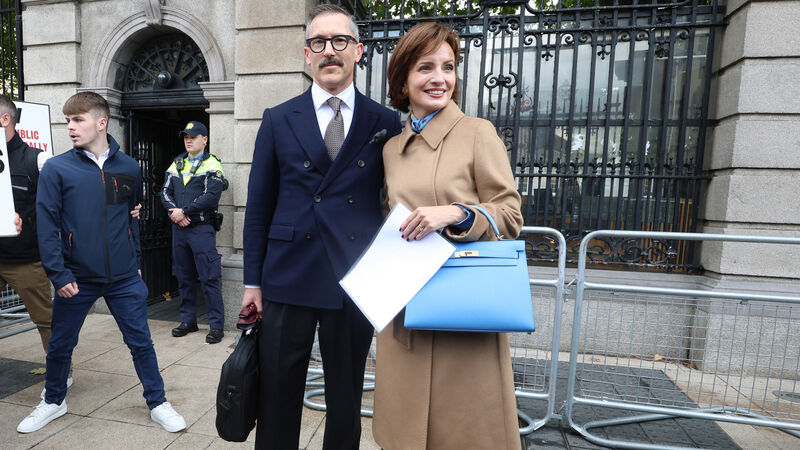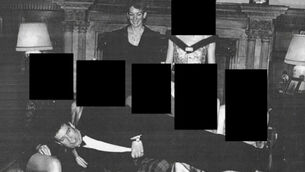Clodagh Finn: The politics of handbags, with all its glorious baggage

Independent presidential candidate Maria Steen with her husband Neill, and carrying her Hermès handbag, outside Leinster House after she failed to secure the required 20 nominations to run for the presidency. Photo: Leah Farrell/© RollingNews.ie
Ah, politics and handbags. Maria Steen might have failed to get a presidential nomination but she has reminded us how effective that symbol-laden accessory can be as a political weapon (a back-firing one in this case.)
She should have taken her cue from the maestra Margaret Thatcher, a woman who wore hers like a ceremonial staff and once claimed her handbag was the only leak-free place on Downing Street.















